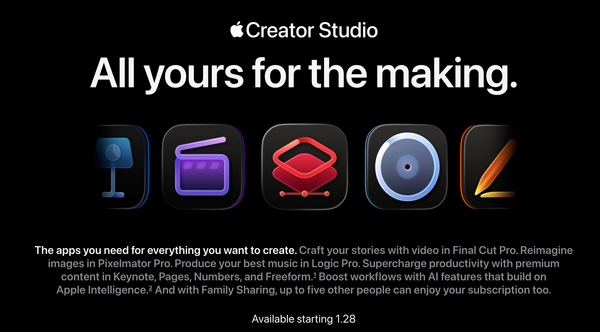The Entrepreneurial Future: Why Everyone Will Be Their Own Boss in 15 Years
In 15 years, entrepreneurship will be the norm — explore how technology and shifting landscapes are paving the way for a self-driven…
Imagine a world where the 9-to-5 grind no longer exists — not because it evolved, but because it collapsed under its own weight. We’re entering an era where being your own boss is no longer a choice; it’s a necessity. I strongly believe in the next 15 years, people will have no other option but to become entrepreneurs. The current workforce infrastructure simply can’t hold up, and the signs are everywhere.
The foundation of how we work is crumbling, from outdated corporate structures to industries struggling to adapt to technological advancements. We’re seeing rapid automation, the gig economy is on the rise, and job security is becoming a distant memory. In response, the entrepreneurial mindset is no longer reserved for risk-takers or visionaries — it’s becoming the new default for survival. But why is this shift inevitable, and how can you prepare for it?
Let’s explain why traditional employment is failing, how technological innovation is reshaping our work lives, and why becoming an entrepreneur will likely be the only way to make a living in the next decade.

Pitfalls of Today’s Modern Employment:
The traditional employment system we’ve come to rely on is riddled with cracks. For decades, the 9-to-5 was seen as the pinnacle of stability, offering a predictable paycheck, benefits, and the illusion of security. But that illusion started to fade. Here’s why:
Job security is a thing of the past:
In the past, jobs were seen as stable, long-term commitments, and securing a position in a competitive industry was often the hallmark of success. However, the landscape of work has drastically changed.
Changing Demand for Jobs: With each year, the demand for many traditional jobs has dwindled. Industries that were once booming, like manufacturing, retail, and even white-collar jobs, face mass layoffs or shrinking opportunities. The rise of automation and AI, alongside the development of technology as a whole, has led to entire segments of the workforce becoming redundant. For example, software and algorithms are replacing administrative roles, customer support positions, and even entry-level legal work. Jobs that once required human expertise and decision-making can now be done by machines, reducing the demand for workers in these roles.
Lower Expertise Requirements: Many jobs have also become much easier, requiring less experience or specialized skills. The barrier to entry has just gotten easier, with so many free resources online to access in-depth guides or steps to get better at any craft of your choice. Industries that were once highly competitive, requiring years of training or education, have become more accessible due to the advancements in technology and the growth of our collective knowledge base of information we share on the internet. For instance, graphic design, content creation, copywriting, data analysis, and even coding can now be done with the assistance of AI tools that simplify the processes. The competition has shifted from ” Who’s the most skilled” to “Who can leverage the right technology”, leading to a surplus of workers who can perform the same task within a fraction of the time, with far less effort and need of years of expertise.
Outsourcing and Globalization: The Internet has shifted the paradigm of how businesses operate, opening each and every business to the potential of a global workforce. Companies can now hire workers from anywhere in the world, often at a fraction of the cost of hiring locally, in many cases even requiring far fewer hoops to jump through to hire those workers. Local workers require insurance, pension, vacation days, and health care. This shift has led to a significant change in how businesses approach labor. Jobs that once paid well in developed countries are now outsourced to places where labor is far cheaper and has far fewer demands, such as India, the Philippines, or Eastern Europe. Tasks like customer support, data entry, or even marketing are outsourced for less money, and with the rise of remote work platforms such as Upwork or Fiverr, companies can find competent workers willing to work for much lower wages.
Race to the Bottom: As companies constantly seek to reduce costs, there’s a prominent “race to the bottom” in terms of wages. Someone in a different country can do the same job for significantly less money. This has led to job seekers in high-cost-of-living areas being unable to compete on price, forcing them to either into lower-paying roles or pushing them to completely reinvent themselves to stay relevant in an ever-evolving job market. To maintain profitability, a lot of companies have been forced to re-adjust their initial value proposition, offering more to customers while attempting to cut costs internally — often at the expense of their workers, which would explain why we have heard so many horror stories recently about the working conditions in the corporate world.
Erosion of Worker Satisfaction: A Vicious Cycle: Jobs that were once specialized now require workers to juggle various unrelated tasks, often without additional compensation or adequate training. This has led to widespread burnout as employees are stretched too thin, impacting their well-being and their work quality. At the same time, wages remain the same, and companies continue to seek cheaper alternatives, whether through outsourcing or the gig economy. This creates a vicious cycle where wages drop, worker satisfaction plummets, and companies continue to look for cheaper alternatives. As a result, many workers feel undervalued and frustrated, driving many to pursue entrepreneurship as a path to self-sufficiency. With traditional employment offering diminishing returns regarding stability and fulfillment, entrepreneurship is increasingly seen as a more viable alternative.
The Gig Economy Factor: Meanwhile, the rise of the gig economy has only exacerbated this problem. Gig work, in theory, offers flexibility and independence, but it often comes with lower pay, no benefits, and zero job security. Gig workers are willing to take on smaller jobs at lower wages, so companies can easily outsource work and bypass traditional employee benefits. The shift to gig work has further hollowed out conventional full-time employment, leaving many workers in precarious financial positions, often requiring them to seek multiple jobs to make ends meet.
Diplomas and Formal Education Have Diminished: The diminishing value of diplomas and formal education indicates the shifting job market. While degrees were once considered the key to unlocking stable careers, that narrative is quickly fading. Employers are increasingly focusing on practical skills and hands-on experience over formal qualifications. In many industries, particularly tech and creative fields, the traditional path of acquiring a diploma doesn’t guarantee job placement, nor does it always equip individuals with the skills necessary to thrive in rapidly evolving work environments.
This shift has created frustration among degree-holders, who work in fields entirely unrelated to their academic background. As the job market grows more competitive and specialized, the emphasis has moved toward continuous learning, self-education, and adaptability. The fast-paced nature of industries like technology often prioritizes candidates who can prove their proficiency through projects, portfolios, or short-term certifications rather than the traditional four-year degree.
The diminishing reliance on formal education has further blurred the lines of job security. As companies value skills and adaptability, individuals without continuous growth and learning may become increasingly left behind. With education no longer offering the same career guarantees it once did, entrepreneurship, self-teaching, and skill acquisition are becoming more viable paths to stability and personal fulfillment.
This is creating an evergrowing gap between those with highly specialized, in-demand skills and the rest of the workforce. Those who can’t adapt to new technologies or who are in industries vulnerable to outsourcing or automation are finding it increasingly difficult to secure stable, well-paying jobs.
Automation Is Taking Over:
Advances in AI and machine learning are reshaping the employment landscape, automating tasks that were once seen as the exclusive domain of human workers. What began with factory floors and industrial machines has now infiltrated every corner and sector of the modern-day workforce, from the service industry to the most creative fields.
Dilution of Human-Centric Jobs: Roles that were once considered secure, such as customer service, data entry, and even aspects of financial analysis, are being automated. Companies no longer need large teams of people to perform repetitive or predictable tasks. Chatbots, coupled with thoroughly written faq sections generated by AI, can now handle customer inquiries 24/7, often more efficiently than human workers, reducing the need for call centers or support teams. Data entry, which once required a fleet of administrative staff, is now managed by algorithms capable of processing and organizing vast amounts of information in a fraction of the time.
Automation in Creative Fields: Even more surprising is that fields traditionally seen as resistant to automation are impacted. AI-powered content tools like Midjourney, Sora, DALL-E, or ChatGPT can generate content, graphics, videos, and copywriting with minimal human intervention. Graphic designers, copywriters, and content creators who once relied on their specialized skills find that AI can perform these tasks faster at a fraction of the cost. Heck, even most of the software that these professionals use in their respective fields incorporates AI in some way or another. Photoshop with generative fill, Spotify with X, the AI playlist maker, and even Google made attempts to replace search with a summarized answer to your search query. While this doesn't eliminate the need for human creativity, it certainly devalues the effort required to produce such work, leaving many professionally scrambling to differentiate themselves in a market increasingly dominated by automated tools.
Profit and Efficiency vs. Jobs: Companies are increasingly motivated to maximize profit and efficiency, often at the expense of preserving jobs. Automation enables businesses to cut costs, reduce human error, and scale their operations without additional labor. In industries such as logistics, automated warehouses run by robots can manage tasks that once required large teams of human workers. Similarly, in the financial sector, AI algorithms can now perform complex analyses, reducing the need for multiple workers to be part of analytical teams. The result is a reduced demand for workers, especially those performing routine tasks that can be automated.
Adapt or Get Left Behind: The rapid pace of technological advancement has made it clear that workers need to adapt to the changing landscape. Automation is transforming entire industries, and the message to workers is clear: evolve your skill set or risk being left behind. Those who fail to adapt to these technological changes, whether due to lack of practice or resistance to new technologies, may find themselves needing a viable role in the workforce. In contrast, those who learn to work alongside automation, leveraging AI as a tool rather than seeing it as a threat, may find themselves better positioned in this new reality.
The New Skill Set: Expanding Your Utility Belt: In the evolving job market, simply having one area of expertise is no longer enough: workers need to expand their range of skills to be valuable and versatile. Those who can offer a wider range of services or demonstrate proficiency in multiple areas will have a competitive edge. For instance, a graphic designer who also understands digital marketing or a software engineer with project management skills can provide extra value to employers or clients. The key to staying relevant is to continuously learn and adapt, building a diverse “utility belt” of a variety of hard and soft skills that allows for flexibility and growth. The more you can bring to the table, the more indispensable you become in an economy that rewards versatility and adaptability.
Acquiring these skills is not only about being a more attractive hire; it also fosters the adaptability needed to explore new industries with confidence. By spreading your expertise across multiple sectors, you reduce the risk of being tied to one dying industry. This flexibility ensures that, regardless of changes in the job market, you’re equipped to pivot to new opportunities, keeping you afloat no matter where the tides of automation or economic shifts take you.
The automation revolution is changing the workforce landscape at breakneck speed. While companies are appealing to the prospect of more efficient, cost-effective systems, workers are increasingly being pushed out of the equation. For many, the only way to stay relevant is to continuously adapt, reevaluate, and re-skill—an overwhelming task for those who may lack access to training or resources to do so.
Wage stagnation vs. Cost of Living:
Despite working harder and longer, today’s workforce is facing a frustrating reality: wages have barely budged, while the cost of living has surged. Essential expenses like housing, healthcare, and education have skyrocketed, leaving many people struggling to keep up. The widening gap between stagnant wages and rising costs is pushing more individuals to get multiple jobs or entirely causing them to rethink their reliance on traditional employment.
Housing and Living Expense Soaring: In cities across the world, the price of living has become increasingly unaffordable. Housing markets have exploded, with rent and property prices rising far faster than incomes. Meanwhile, healthcare expenses continue to balloon, putting a strain on workers who now have to budget for out-of-pocket medical costs or expensive insurance premiums. This surge in basic living expenses leaves people with less disposable income and limited opportunities to save.
Wages Aren’t Keeping Up: For many industries, wages have remained stagnant, failing to keep pace with inflation and the escalating cost of living. Despite economic growth in certain sectors, salaries have not increased proportionally. People find themselves working full-time jobs—or even multiple jobs—only to cover the basics like rent, food, and transportation, with little left for savings or personal growth.
Increased Workload with Little Reward: Not only are wages stagnant, but many workers are being asked to take on more responsibility with any additional compensation. Employees are expected to be more efficient and productive. Oftentimes, the norm suggests that you work longer days and dedicate more of yourself to your job in order to excel. This added workload and increasing expectations from the workers, combined with stagnant wages, exacerbates the financial and mental strain on workers, leading to burnout and dissatisfaction.
The Rise of Multiple Income Streams: As the cost of living continues to climb, more workers are finding that a single job is no longer enough to meet their financial needs. Relying solely on one source of income has become a risky gamble, leading many individuals to pursue multiple jobs or establish income to ensure economic security. Workers are diversifying how they earn money rather than just focusing on one traditional full-time role. This can include part-time work, freelance projects, side businesses, or passive income sources. The duality of maintaining multiple jobs is becoming a necessity rather than a choice, as it provides a buffer against the unpredictability of today’s job market. Having several income streams offers financial relief and gives individuals more control over their earnings and the flexibility to pivot between industries if one sector falters. The modern worker increasingly juggles various roles, constantly seeking new opportunities to stay afloat in an economy where a single paycheck no longer stretches far enough. The days of relying solely on one full-time job are fading as more people embrace the idea of financial diversification for stability.
In a world where wages are stagnant and the cost of living shows no signs of slowing down, the growing disconnect forces a shift in priorities. More and more people are looking beyond traditional employment as the answer to their financial challenges, turning instead toward entrepreneurship and self-sufficiency as a means of reclaiming stability and control over their futures.
Embracing the Shift: What Comes Next?
We’ve covered how the changing landscape of work stems from advancements in technology, automation, and shifting economic structures. While these changes may seem daunting, my purpose as a writer is to guide, teach, and offer practical solutions to ensure that we all come out stronger on the other side. I also intend to build a community where we can share knowledge, support one another, and grow together as we navigate these shifts.
Though this article doesn’t capture every opportunity in detail, future pieces will explore specific strategies to help you thrive in this new reality. Together, we’ll turn these challenges into lasting success. For now I will leave you with a handful of perspectives to consider that I will later delve into more detail regarding each of these points in their own designated articles.
For starters, we must embrace and capitalize on this change rather than let it demoralize us into feeling helpless. Now more than ever, the ability to stand alone without relying on a massive company or conglomerate to provide for us has never been easier. With so many emerging tools and resources being discovered every day, there’s never been a better time to stand independently.
Reframe the Pifalls that companies struggle with into opportunities.
Where automation tends to take away workers' ability to succeed in the corporate space, it is an invaluable tool for smaller teams to achieve more with fewer resources. Think about all the planning, strategizing, marketing, and content creation you can do practically on your own.
Wage stagnation pushes people to seek multiple income streams and self-reliance. For some, that might feel like a bad thing, but for those who possess the knowledge, leadership, and management skills, that is something of a blessing. With the gap growing more and more each day, there are skilled workers out there who, when equipped with the right tools and guidance, are willing and capable of devoting themselves to a project or a startup that will actually appreciate their efforts. Creating that platform for the people in that niche will likely be a priceless effort that must be more than ecstatic to be a part of.
Multiple jobs or income streams offer flexibility and long-term resilience. We know that it's not good to put all your eggs in one basket; that saying is also applicable here; having your whole life dependent solely on one form of income is ludicrous if you think about it. As we previously discussed, times have changed, and the mindset of being able to rely on one company to pay these bills comfortably is just not feasible nowadays. Now, what happens if you have a job, a passive, hands-off form of income, a side gig that you only have to work on a few times a week, and maybe some investments that appreciate in value over time? Well, with a bit of work upfront, you can set all of those up, allowing the weight of the one form of income supporting you to be substantially reduced, and if something happens to the main thing, you can rest assured you have backups that will keep you afloat.
Learning new skills and Leveraging Existing Skills
In today's day in age, knowledge is power. Learning a new skill is far more accessible than it has ever been. There are so many free online tools and resources that can hold your hand from start to finish in learning invaluable skills that can aid in your development in the long run, ensuring that you have a far greater chance at success.
Be adventurous when it comes to exploring new fields to expand your skill set. By dipping your hands into a wide variety of industries, you are giving yourself so many opportunities for success and mitigating the number of problems you might face by your skill being a part of a dying sector. Your ability to educate yourself and grow a bunch of different skills that you can learn, refine, and master will be the difference between you sinking with the ship and being able to bounce back and start or being a part of something new that has excellent potential. It all comes down to expanding that skill base.
Cultivate the ability to thrive in fast-changing industries. The ability to learn and grow your existing skills to the point beyond adequate application is a skill you should practice in itself. How quickly you can develop that skill or navigate the ins and outs of any given sector will prove to be one of your most advantageous skills. Once you understand your strengths and shortcomings and how well you excel, from that point on, it's all about repeating that formula in all your other skills until you are highly proficient in everything you get your hands on.
Put more emphasis on what you excel at and turn that into a unique service or product. There's no doubt that having many skills is helpful, but having a few skills that you are exceptional at is far more beneficial. Leaning on what you already know, maybe in the form of selling it as a service, teaching it, or creating something out of it, will 9 out of 10 times prove to be far more accessible and more favorable than having to learn the crux of a new skill and building it all the way up to a profitable endeavor.
Avoid chasing too many niches — master your strengths first. I think it's essential that we start working our way backward. Considering that I advocated for adopting new skills, it's equally important to mention that trying to learn everything is just not doable; you can’t become proficient in every craft or specialty. Stick to the ones close to your existing skill set; of course, be adventurous and explore, but always travel the paths closest to your strengths to avoid creating massive uphill obstacles that you will regret, knocking you off your trajectory.
Build a personal brand around your existing skills to stand out. The best way to frame this point is to think of yourself as a tool. Alone, you may have many use cases—there’s no denying that—but imagine if you were part of a highly functional, well-designed, well-engineered toolbox with all the bells and whistles. That’s how you should perceive yourself; it’s no longer the case that you are just a one-use case tool but rather the whole package, your image, the brand you create, the identity you curate around yourself, AND that you build, is far more valuable as a bundle of all your skills honed into one glorious collection rather than sold separately.
This ties perfectly with the final point: building a personal brand. Arguably, it’s one of the most crucial aspects of individualism, which is why I’ve saved it for the end. In today’s ever-changing world, building something you can call your own is key to success. By creating and nurturing something that’s yours, you not only call the shots on how well it will thrive, but you also hold the responsibility for its growth — or its failure if neglected. The vital thing to understand is that it’s entirely in your control.
By laying the foundation piece by piece, you can ensure that what you build grows at a pace that suits you. The tools available today — highly advanced and far more affordable than ever — allow you to create small-scale operations with minimal overhead. Focusing on a specific niche that needs filling can position you as a leader. By efficiently managing your costs and operations, you can direct your energy toward the core of your business or concept. As success starts, the smooth, scalable workflow you’ve built will allow you to grow at your own pace without being overwhelmed by the pressures of rapid expansion. Most importantly, you can work on something you love and are passionate about, and isn’t that the point of life — to devote yourself to something you love?

Thank You for Reading
Thank you for taking the time to read my first article. My mission with Mostly Media is to guide and support individuals like you as we navigate the ever-changing world of work and entrepreneurship. Your feedback is invaluable, and I’d love to hear your thoughts. Please leave a comment letting me know how I did and what you’d like to see in future articles. If you have any inquiries or want to connect, feel free to email me at [email protected] or follow me on my socials.
If you found this article helpful and want to support my journey, please consider donating to my Ko-fi page at https://ko-fi.com/mostlymedia. Your contributions will help me turn Mostly Media into my full-time project, allowing me to provide even more valuable content to help us all thrive in this new economy. Thank you for being part of this journey — I’m excited about what’s ahead!



